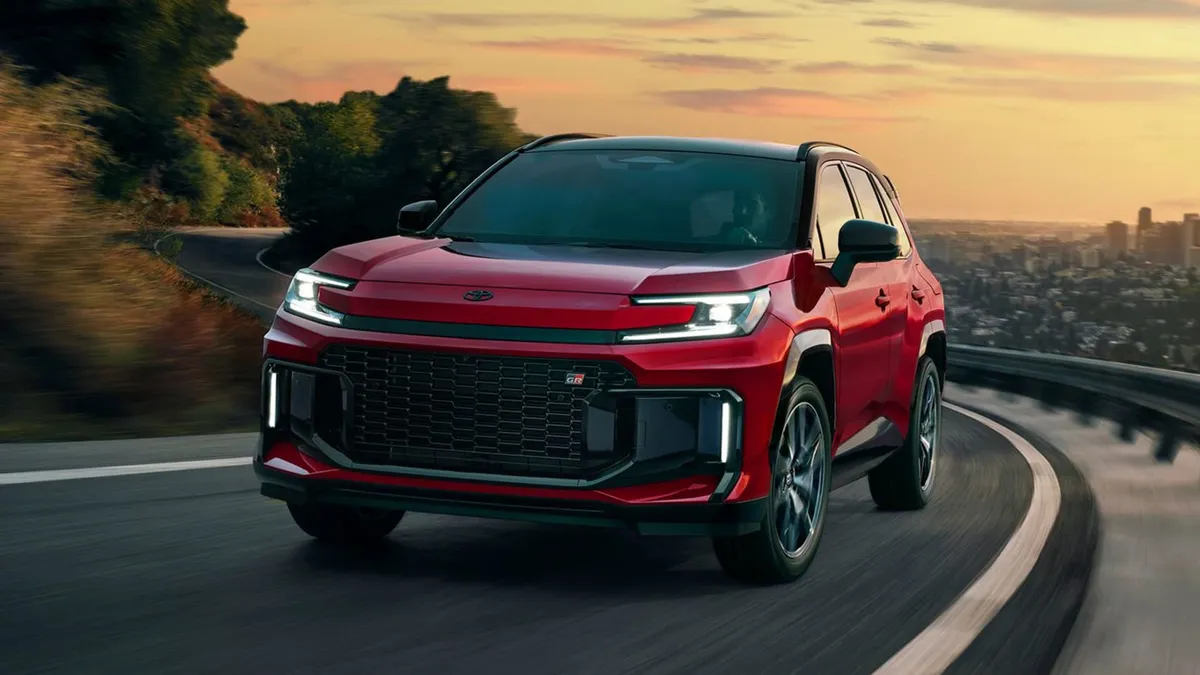
In a bold move, Toyota Motor Corp has announced that the 2026 Toyota RAV4 will be offered exclusively as a hybrid or plug-in hybrid model. This decision marks a significant shift in the automotive industry, as the RAV4, the top-selling SUV in the United States, will eliminate the traditional gasoline engine for the first time in its history. The redesigned RAV4 will still utilize a 2.5-liter four-cylinder engine, but it will be enhanced with hybrid technologies that incorporate batteries and electric motors.
The automotive landscape has seen a slower-than-anticipated adoption of all-electric vehicles, prompting manufacturers to explore hybrid models that blend electric vehicle technologies with traditional internal combustion engines. By doing so, automakers aim to not only enhance vehicle performance but also to comply with increasingly stringent fuel economy regulations. Toyota, a pioneer in hybrid technology since the launch of the Toyota Prius in the late 1990s, continues to champion hybrid vehicles despite the growing industry trend towards fully electric models.
In 2024, Toyota's electrified vehicle sales in the United States, which include hybrids, plug-in hybrids, and all-electric vehicles, accounted for an impressive 43.1% of the company’s total 2.3 million units sold domestically. Notably, Toyota RAV4 sales surged by 9.3% last year, totaling nearly 475,200 units sold. This included a remarkable 29.3% increase in sales of RAV4 hybrids and a 19.3% rise in plug-in hybrid electric vehicles. Approximately half of RAV4 sales last year were attributed to hybrid models.
David Christ, head of the Toyota brand in North America, stated that the decision to exclusively launch the RAV4 as a hybrid was driven by its established popularity and increasing consumer demand. "The hybrid is faster turning; it has more sales orders on it, and the consumers and dealers are asking for it," he shared during an event at Toyota's North American headquarters. Christ emphasized that consumer preferences are clearly supporting hybrid models.
Toyota plans to expand its hybrid offerings, including additional plug-in hybrid electric vehicle options. Currently, seven of Toyota's vehicles are exclusively hybrid models, such as the Toyota Camry, Toyota Prius, Sienna minivan, and Sequoia SUV. The RAV4 will become the eighth model in this lineup. Last year, RAV4 hybrids accounted for 44% of the vehicle's total sales, while plug-in models constituted 6.5%.
The redesigned Toyota RAV4 is expected to hit U.S. dealerships later this year. This all-hybrid lineup will feature significant interior and exterior design changes, alongside upgrades in performance and technology. While Toyota has yet to disclose specific pricing details, the current RAV4 starts at $30,645, with the hybrid variant priced around $33,700, inclusive of mandatory delivery fees.
Despite its success, the RAV4 faces challenges due to ongoing tariffs imposed by President Donald Trump, which currently stand at 25% on imported vehicles and auto parts. While Toyota manufactures the RAV4 at a plant in Kentucky, a significant portion of U.S. sales comes from vehicles produced in Ontario, Canada. Additionally, Toyota imports its plug-in hybrid models from Japan.
Mark Templin, chief operating officer of Toyota Motor North America, noted that the company plans to increase RAV4 production at its Kentucky facility to counteract the impact of tariffs, although specific plans remain under wraps. "It's such a big volume car. It was the No. 1 selling vehicle in the entire market, even beating out the F-150," Templin added. With the introduction of the hybrid-only RAV4, Templin expressed confidence that Toyota will need multiple plants to meet demand.
According to Cox Automotive, the RAV4 finished third in sales last year, trailing behind the Ford F-Series and Chevrolet Silverado. However, other data firms indicate that the RAV4 outperformed the Detroit pickups when considering specific models. Currently, Toyota's days' supply for the RAV4 stands at 29 days, making it one of the fastest-selling vehicles in the market, significantly lower than the industry average of 66 days.
As Toyota navigates the complexities of tariffs and production adjustments, Templin emphasized the importance of stability: "The worst thing for an industry is uncertainty. Consistency is the best thing we could all ask for."